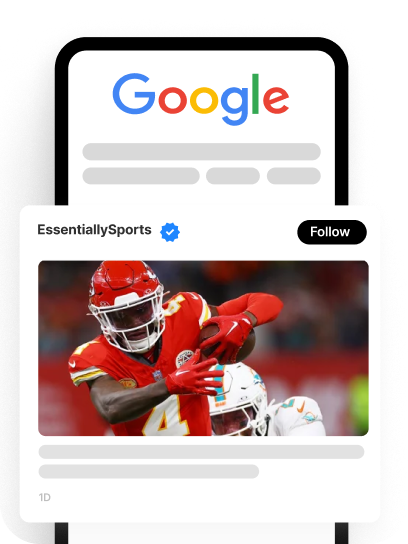
Imago
NFL, American Football Herren, USA New York Giants Minicamp Jun 17, 2025 East Rutherford, NJ, USA New York Giants quarterback Russell Wilson 3 speaks at a press conference, PK, Pressekonferenz during minicamp at Quest Diagnostics Training Center. East Rutherford Quest Diagnostics Training Cente NJ USA, EDITORIAL USE ONLY PUBLICATIONxINxGERxSUIxAUTxONLY Copyright: xJohnxJonesx 20250617_szo_ja1_0101

Imago
NFL, American Football Herren, USA New York Giants Minicamp Jun 17, 2025 East Rutherford, NJ, USA New York Giants quarterback Russell Wilson 3 speaks at a press conference, PK, Pressekonferenz during minicamp at Quest Diagnostics Training Center. East Rutherford Quest Diagnostics Training Cente NJ USA, EDITORIAL USE ONLY PUBLICATIONxINxGERxSUIxAUTxONLY Copyright: xJohnxJonesx 20250617_szo_ja1_0101
Three years ago, Seattle seemed poised to gamble away its golden years. You don’t just ship off a Super Bowl champion who’d made nine Pro Bowls and thrown 40 touchdowns the season before. Yet, the Seahawks decided to trade Russell Wilson. More than half of the fans expressed outrage on social media, shocked by a move that, to many, felt like abandoning the franchise’s backbone. Analysts openly questioned why Seattle would let go of its most reliable passer.
Watch What’s Trending Now!
But beneath all the backlash lay deeper motives. Front-office insiders had flagged Wilson’s declining pocket mobility and growing tensions over playcalling and protection. ESPN reported that internal analysis showed Seattle doubting whether he could sustainably adapt into a pure pocket passer, signaling a strategic pivot rather than a panic move. The result? The Seahawks shipped Wilson to the Broncos, and that’s where things took an even more revealing turn.
Because while it’s easy to assume the trade was purely about on-field decline, there was another factor looming in the background: a colossal contract Wilson was preparing to demand. Earlier this week, it was reported that he had requested a seven-year, $350 million fully guaranteed contract from Denver. The news came to light when the ruling of a January collusion grievance between the NFL and the NFL Players Association became public.
Though Wilson ultimately signed for less ($245 million with $160 million guaranteed), many believe that towering price tag was exactly what Seattle knew it would face if it tried to keep him around. And let’s face it—if the Seahawks had signed Wilson on a fully guaranteed deal, it would have wrecked the franchise. The reason? Well, the veteran quarterback’s performance declined ever since he left Seattle.

Imago
Syndication: The Record Head coach Brian Daboll and Russell Wilson, quarterback with the NY Giants, are shown during practice at Quest Diagnostics Training Center, East Rutherford, NJ, May 28, 2025. North Jersey , EDITORIAL USE ONLY PUBLICATIONxINxGERxSUIxAUTxONLY Copyright: xAnne-MariexCaruso/NorthJersey.comx USATSI_26306924
First season in Denver, Wilson got hit a lot (55 sacks), racked up career-low 16 touchdown passes, and 11 picks. To make it worse, he finished 27th in the NFL in QB rating. Second season? It got a little better, sure. But Wilson still struggled to turn heads. With 26 touchdowns and eight picks in his second season with the Broncos, Sean Payton decided to part ways with the former Super Bowl champion.
Now, some might argue that Wilson had a breakout season in Pittsburgh, given that he earned his tenth Pro Bowl nod. But still, it wasn’t good enough for the Steelers to keep him in town. The Seahawks, on the other hand, haven’t been a top contender since, but they still rebuilt their team with the picks they got (two first-round and two second-round draft picks) from Wilson’s trade.
Payton and Co. utilized it precisely and drafted key contributors for the team. We’re talking about 2022 first-round Charles Cross (their most reliable OL for the last three years), 2023 first-round pick Devon Witherspoon (already a two-time Pro Bowler), and another first-round pick, Jaxon Smith-Njigba, who’s now their WR1 after DK Metcalf left the team. All in all, Russell Wilson’s trade caught some side-eyes, no doubt. But it looks like the Seahawks didn’t get hurt at all.
Russell Wilson was blamed for turning down a fully guaranteed deal
When the Browns signed Deshaun Watson on a five-year, $230 million fully guaranteed deal, it set a new benchmark for veteran quarterbacks seeking new contract extensions. Suddenly, vets like Lamar Jackson, Kyle Murray, and of course, Russell Wilson were next in line, eyeing a massive fully-guaranteed deal. Wilson eventually demanded a fully guaranteed seven-year, $350 million deal. However, he actually settled for a lesser deal with a significantly lower guaranteed income.
Murray, on the other hand, learned the lesson fast and landed a partially guaranteed $160 million package, while Lamar pushed negotiation further, trusting his talent to sign an even bigger deal. The catch? Well, right after that went down, Wilson’s choice to settle down for a deal without full guaranteed money was blamed by the NFLPA President, J.C. Tretter, as confirmed by Pablo Torre of the podcast Pablo Torre Finds Out.
“What I can now report is that J.C. Tretter, in a series of text messages that he sent to then-executive director of the union, DeMaurice Smith, repeatedly insulted Russell Wilson,” Torre pointed out. “At one point, he used an expletive that I will not say here. J.C. Tretter also called Russell Wilson a quote-unquote ‘wuss.’ Then he said of Wilson, quote, ‘Instead of being the guy that made guaranteed contracts the norm, he’s the guy that ruined it for everyone,’ end quote.” Translation?
Well, after choosing to sign a five-year deal with the Broncos that included partially full-guaranteed income, Tretter believes that Wilson wasn’t strategic enough to push harder for a deal that he initially wanted. The result? The rest of the players seeking a fully guaranteed deal had to settle for lesser income, at least that’s what Tretter believes. All in all, Russell Wilson’s deal with the Broncos didn’t turn out well for him.




